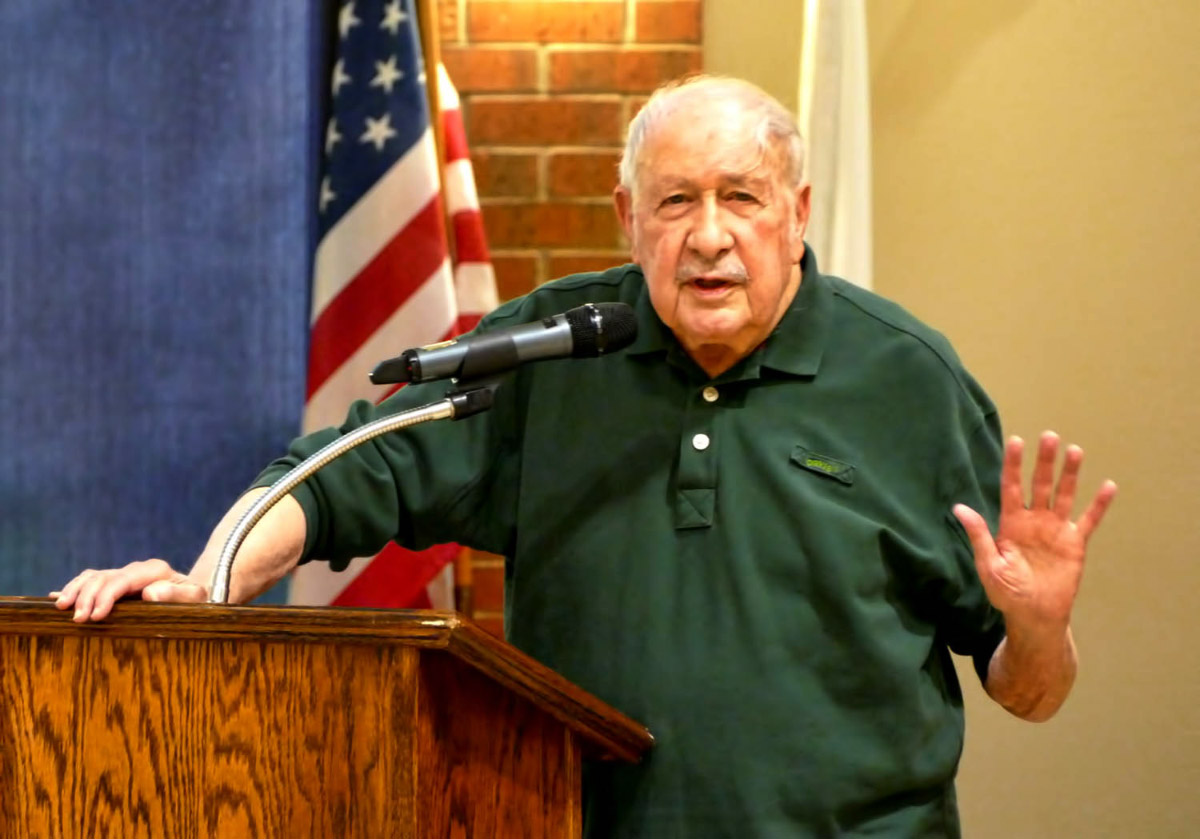I am part of what’s popularly known as the Greatest Generation, which survived both the Great Depression and World War II, two decidedly challenging eras in American history. We are now experiencing a quite different but equally challenging period, the coronavirus pandemic. Let’s compare these episodes.
The Depression was a condition of stagnant economics never before experienced to that extent and without a known solution to overcome it. I grew up in Oklahoma and Kansas during the Depression, and my memories are of so-called “hobos,” unemployed men seeking any level of work and traveling widely to find it. I saw them passing by on trains, but not in passenger cars. They rode on flat cars and in boxcars instead, traveling from town to town to find work of any kind, for any duration. And if not finding it, they would seek meals by knocking on back doors —usually located near the kitchen — and begging. If successful they would eat while sitting on the back steps. Things did not improve much for many years. A common phrase used while saying goodbye to travelers was, “Write if you find work.”
What changed for the United States was the onset of World War II — not entering it but providing war products for our allies in Europe. It was called lend-lease, and our country took a chance and made the weapons on the prospect of getting paid for them later. Our economy was found to be very capable, and we prospered accordingly. One country we did not supply was Japan, and that caused them to force us into the conflict.
We made weapons for ourselves as well as our allies, and overall output soared. We were protected by oceans on either side of our continent. But we were fighting both in Europe and the Pacific and materials and products of all kinds were being consumed to the extent that rationing was required in our homeland. Food, cars and gasoline were in short supply and allocated by the federal government through stamps.
My family in Kansas City did not have a car, and I didn’t know how to drive when I enlisted at an early age in the Army. Sixteen million people served in our country’s military during the war. More than one million were killed or wounded. I escaped that but was injured on duty and had to be hospitalized for a period.
How did it feel to go through the Depression and World War II? I would say futile concerning the Depression. You knew the government was looking for a solution but couldn’t find one. The deprivation seemed universal. What people today may not know is that there was some improvement in the economy in the late 1930s, giving some hope for a recovery — and then it dipped again. The feeling was that all was lost and nobody knew what to do.
Yes, there was deprivation during the war, but it was lightened by purpose because the very existence of our nation was at stake. My belief is that there was more uniformity of belief and intentions of our American people then than in any other time in our history, with two very limited exceptions: those with a tie to one of our enemies and those who thought we just couldn’t win.
The coronavirus pandemic is a challenge with strongly connected medical and economic concerns. The medical problem is that one person can easily become infected by another who exhibits no sign of having the virus. Once infected, a person’s health can degrade to the point of death. Age adversely affects a person’s resistance. Thus, concern about even casual associations between individuals leads to rigid rules of physical separation through social distancing and the use of masks. In the workplace, that affects productivity and profitability and may even put some concerns out of business.
The solution to the Depression was presented to us: World War II. The best solution to a war is to win it, and we did. The solution to this pandemic is social distancing and other means of keeping the virus from spreading. Can we “oldies” be part of successfully confronting this current challenge? If we do, we’ll show we still deserve the label Greatest Generation.
Harry Clements is a former aeronautical engineer, government official, businessman and teacher who joined the board of The Active Age earlier this year. He can be reached at harry.clements@yahoo.com.









